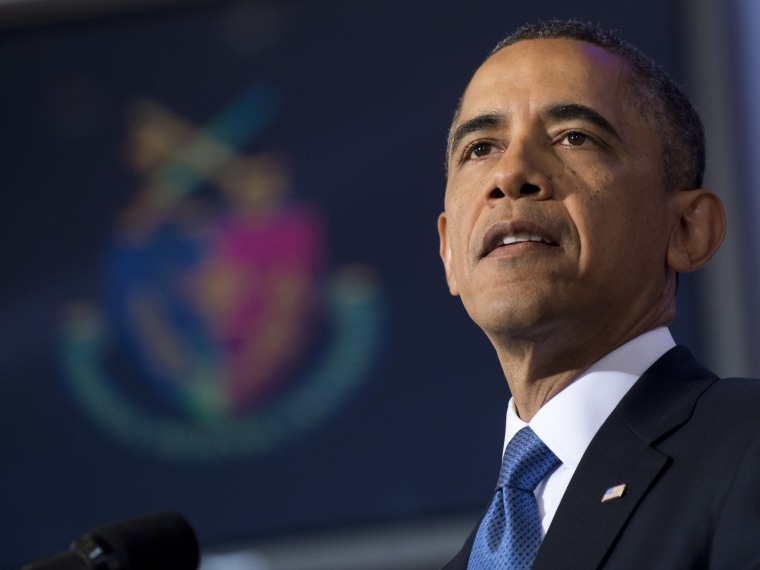President Obama invoked Osama bin Laden in his counterterrorism speech last week to help him make the case that his policies had worked. The president cited a document in which bin Laden had written, “We could lose our reserves to the enemy’s air strikes. We cannot fight air strikes with explosives.”
Bin Laden’s words are evidence of the effectiveness of U.S. drone strikes in Pakistan. It supports the view that, whatever their legal, moral, and strategic downsides, they helped to decimate the al Qaeda leadership. But if we’re going to heed the words of those who wage violence against the west—and we should—we shouldn’t do so selectively.
Boston bombing suspect Dzhokhar Tsarnaev wrote a note on the wall of the boat where he hid while law enforcement searched the Boston area for him. In it, he said his actions were payback for U.S. wars in Iraq and Afghanistan and likened the victims to innocent Muslims killed by the United States.
Last week, the perpetrator of the machete attack on a British soldier in England was no less explicit: “The only reasons we killed this man is because Muslims are dying daily. This British soldier is an eye for an eye, a tooth for a tooth. We apologize that woman had to see this today, but in our lands our women have to see the same.”
Faisal Shahzad, the would-be Times Square bomber, told a court in 2010 that he’d acted in response to U.S invasions of predominantly Muslim nations. Previously, when apprehended, the Pakistani-born American had said to law enforcement officials, "How would you feel if people attacked the United States? You are attacking a sovereign Pakistan."
American violence leads to anti-American violence: it’s logic so basic a six-year-old could grasp it. In fact, the CIA coined a term for it: “blowback.” It was first used to describe the potential consequences of the American-backed 1953 coup in Iran.
Yet to point this out has always been controversial. After 9/11, a handful of prominent figures, from Susan Sontag on the left to Ron Paul on the right, dared to state the obvious. They were called traitors and terrorist-supporters by people who didn’t understand, or pretended not to understand, the difference between explanation and justification.
The taboo, however, seems to be lifting as decidedly mainstream voices are beginning to recognize the boomerang effect of violence. The Showtime hit Homeland features an American soldier who turns against his country after a drone attack kills a child. After the Boston bombing, Tom Brokaw urged the media to focus on the “enormous rage” caused by drone attacks. General Stanley McChrystal has raised the possibility of a retaliatory suicide bomb in Central Park, and General Cartwright, former vice chairman of the Joint Chiefs, has also warned of “blowback.”
Although in his speech, Obama more or less acknowledged the reality of blowback, it’s unclear how much his revamped counterterrorism approach would do to lessen it. For example, drone strikes responsible for a large number of civilian deaths will continue.
In any case, American militarism is much larger than the “War Against Terrorism.” In 2009, Stephen Walt estimated that since 1980, the United States had killed more than a million Muslims. With those numbers in mind, is it even serious anymore to ask “Why do they hate us?”
The United States continues to prop up and arm regimes that oppress Muslims. Beyond its wars in Afghanistan, Pakistan, Yemen, and Somalia, the U.S. military has a large presence in the Muslim world. In the 90s, the U.S troops in Saudi Arabia topped bin Laden’s list of grievances. Former president George W. Bush pulled them out but the U.S. military has reentered Saudi Arabia in the form of a drone base.
“Let’s by all means grieve together,” Sontag wrote after the attacks of Sept. 11, 2001. “But let’s not be stupid together.” Twelve years later, we’re still being stupid together.
